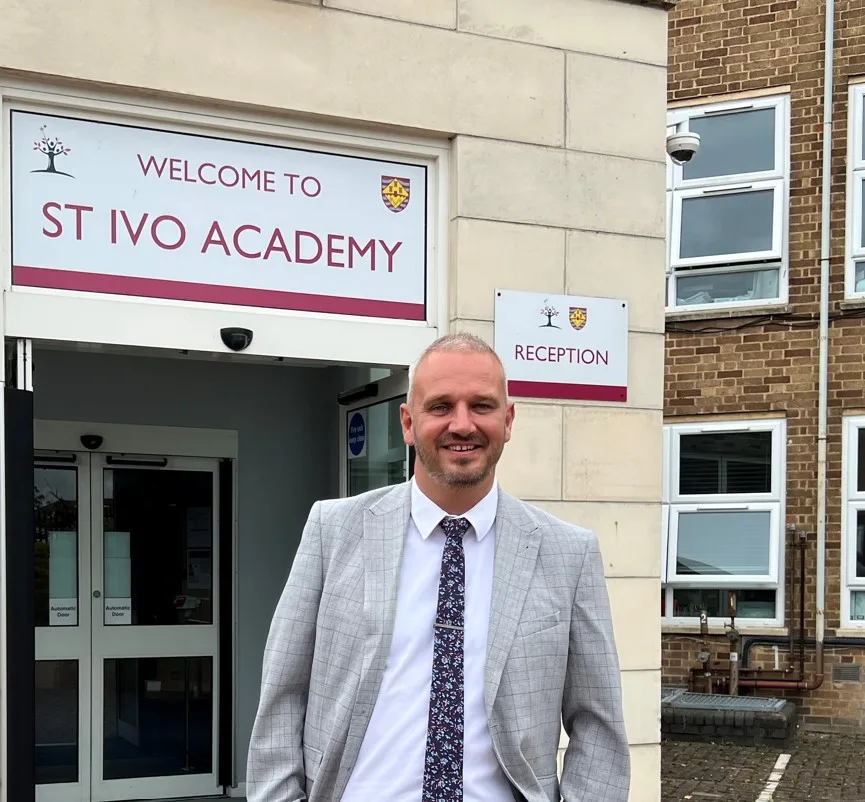A new miscarriage clinic is to open at Bourn Hall, Cambridge.
The clinic will be open to those who have experienced one or more miscarriages.
“The process of investigation, concluding with a consultation to discuss results and next steps, takes approximately eight weeks,” said a Bourn Hall spokesperson.
Bourn Hall has appointed Dr Shreeya Tewary, formerly a Research Fellow and then Clinical Lecturer at the Tommy’s Centre for Miscarriage Research, to support the development of its new Miscarriage Clinic.
The clinic will be open to both couples and individuals even after a single miscarriage.
The Miscarriage Clinic aims to support those who have experienced a loss from either a natural or assisted conception.
The team includes experienced fertility midwives and consultant gynaecologists and obstetricians each with different specialisms.

Dr Tewary completed an MD in Recurrent Pregnancy Loss (RPL). She took two years out of her Obstetrics and Gynaecology training to work under the supervision of world-renowned Professors Quenby and Brosens at the Tommy’s Centre for Miscarriage Research, University Hospital Coventry, and Warwickshire. During this time, she led a trial looking at the role of a medical treatment for patients with recurrent pregnancy loss.
Dr Tewary, who joined the Bourn Hall Cambridge clinic in March, said: “1 in 4 women will suffer a miscarriage at some point in their life. For 80% of these losses, it will be a chance event due to a chromosomal error in that particular pregnancy.
“Recurrent pregnancy loss is a different condition and much rarer. It is estimated that 5% of women experience two consecutive miscarriages and approximately 1-2% suffer three or more and these are increasingly likely to be genetically normal embryos with each loss, so we need to look for other causes.
“There is emerging evidence that the human endometrium (lining of the womb) plays an important role in determining the success of implantation.”
Dr Tewary explains that the human endometrium is one of the most dynamic human tissues, undergoing regeneration every single month following a menstrual period during a woman’s reproductive years.
Work by researchers at The University of Warwick has given insights into the cyclical changes and mechanisms within the endometrium that govern embryo implantation.
This has revealed that some women have fewer stem cells in their endometrium, and this might influence its receptivity to embryos and selectivity of quality. It is thought that an imbalance may result in it rejecting healthy embryos.
Dr Tewary conducted the SIMPLANT trial to investigate if the medication Sitagliptin improves the stem cell count at the lining of the womb to be then potentially considered in the future as a pre-conception treatment to improve the environment for implantation*.
The research was funded by Tommy’s and sponsored by University Hospitals Coventry and Warwickshire NHS Trust. The aim was to improve the quality of the endometrium and its ability to support implantation and pregnancy.
The pilot study had promising results, but Dr Tewary said: “A much larger trial is needed to assess the effectiveness of sitagliptin in increasing the stem cell density of the endometrium.”
Medical investigation and intervention is just one element of helping patients with recurrent pregnancy loss.
“Recurrent pregnancy loss is debilitating and associated with considerable psychological distress. It has been shown that compassionate care and recognition of this significant life event has a beneficial effect on outcomes,” Dr Tewary said.
“Having a Miscarriage Clinic that is open to anyone on request will make this specialist support more accessible and I am delighted to be part of this pioneering approach at Bourn Hall.”
The Miscarriage Clinic can be accessed through the Bourn Hall Clinics at Cambridge, Norwich, Wickford, and Colchester.
It will offer consultation and clinical advice, a carefully researched panel of tests, nutritional therapy, reassurance scans and dedicated fertility nurse and midwife specialists with experience of supporting those who have experienced loss of a pregnancy.
Find out more at https://bit.ly/BH-Miscarriage.
A new miscarriage clinic is to open at Bourn Hall, Cambridge.
The clinic will be open to those who have experienced one or more miscarriages.
“The process of investigation, concluding with a consultation to discuss results and next steps, takes approximately eight weeks,” said a Bourn Hall spokesperson.
Bourn Hall has appointed Dr Shreeya Tewary, formerly a Research Fellow and then Clinical Lecturer at the Tommy’s Centre for Miscarriage Research, to support the development of its new Miscarriage Clinic.
The clinic will be open to both couples and individuals even after a single miscarriage.
The Miscarriage Clinic aims to support those who have experienced a loss from either a natural or assisted conception.
The team includes experienced fertility midwives and consultant gynaecologists and obstetricians each with different specialisms.
Dr Tewary completed an MD in Recurrent Pregnancy Loss (RPL). She took two years out of her Obstetrics and Gynaecology training to work under the supervision of world-renowned Professors Quenby and Brosens at the Tommy’s Centre for Miscarriage Research, University Hospital Coventry, and Warwickshire. During this time, she led a trial looking at the role of a medical treatment for patients with recurrent pregnancy loss.
Dr Tewary, who joined the Bourn Hall Cambridge clinic in March, said: “1 in 4 women will suffer a miscarriage at some point in their life. For 80% of these losses, it will be a chance event due to a chromosomal error in that particular pregnancy.
“Recurrent pregnancy loss is a different condition and much rarer. It is estimated that 5% of women experience two consecutive miscarriages and approximately 1-2% suffer three or more and these are increasingly likely to be genetically normal embryos with each loss, so we need to look for other causes.
“There is emerging evidence that the human endometrium (lining of the womb) plays an important role in determining the success of implantation.”
Dr Tewary explains that the human endometrium is one of the most dynamic human tissues, undergoing regeneration every single month following a menstrual period during a woman’s reproductive years.
Work by researchers at The University of Warwick has given insights into the cyclical changes and mechanisms within the endometrium that govern embryo implantation. This has revealed that some women have fewer stem cells in their endometrium, and this might influence its receptivity to embryos and selectivity of quality. It is thought that an imbalance may result in it rejecting healthy embryos.
Dr Tewary conducted the SIMPLANT trial to investigate if the medication Sitagliptin improves the stem cell count at the lining of the womb to be then potentially considered in the future as a pre-conception treatment to improve the environment for implantation*.
The research was funded by Tommy’s and sponsored by University Hospitals Coventry and Warwickshire NHS Trust. The aim was to improve the quality of the endometrium and its ability to support implantation and pregnancy.
The pilot study had promising results, but Dr Tewary said: “A much larger trial is needed to assess the effectiveness of sitagliptin in increasing the stem cell density of the endometrium.”
Medical investigation and intervention is just one element of helping patients with recurrent pregnancy loss.
“Recurrent pregnancy loss is debilitating and associated with considerable psychological distress. It has been shown that compassionate care and recognition of this significant life event has a beneficial effect on outcomes,” Dr Tewary said.
“Having a Miscarriage Clinic that is open to anyone on request will make this specialist support more accessible and I am delighted to be part of this pioneering approach at Bourn Hall.”
The Miscarriage Clinic can be accessed through the Bourn Hall Clinics at Cambridge, Norwich, Wickford, and Colchester.
It will offer consultation and clinical advice, a carefully researched panel of tests, nutritional therapy, reassurance scans and dedicated fertility nurse and midwife specialists with experience of supporting those who have experienced loss of a pregnancy.
Find out more at https://bit.ly/BH-Miscarriage.






















